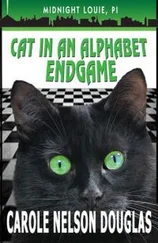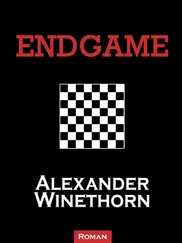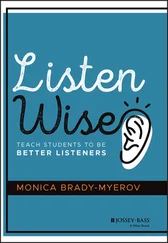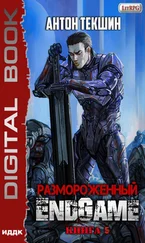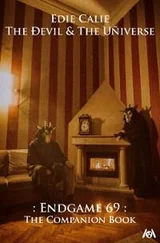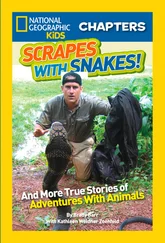In researching this book, I have delved into just about everything that has been written about Fischer in English, listened to all of his broadcasts, read his books and other writings, and carefully examined his letters to and from his mother, Pal Benko, Jack Collins, and others. I have had translations done of other materials whose languages were unknown to me.
When I worked on previous writings about Fischer, I had discussed him with several former World Champions—Mikhail Botvinnik and Vasily Smyslov in Macedonia and Max Euwe in New York and Iceland—and dozens of players, and the reader may find a small portion of material reworked, redeployed, and integrated in Endgame that can be found elsewhere in other prose of mine. My attempt was to capture Bobby Fischer the man and not just offer a chronology of his tournaments and matches.
When I was in Reykjavik for two months attending every round of the first Fischer-Spassky match, I had the opportunity to talk about Bobby with such chess lights as Miguel Najdorf, Svetozar Gligoric, Robert Byrne, Bent Larsen, Max Euwe, William Lombardy, Lubomir Kavalek, Lothar Schmid, Dragoljub Janosevic, I. A. Horowitz, and Larry Evans, as well as most of the chess community present, in addition to such literary lions as Arthur Koestler, George Steiner, and Harold Schonberg. Bobby’s legal eagles, Paul Marshall and Andrew Davis, although reserved, also opened up to me. All of the above gave me the benefit of their insights into Bobby. In some cases, I have continued a dialogue with some of them in my recent preparation of Endgame .
Back in 1972, the Soviet players who accompanied Spassky—Efim Geller, Nikolai Krogius, and Ivo Nei—refused to speak to me, probably thinking of me as a spy for the United States side, or at least someone who would aid Bobby in some way in his pursuit of the championship, as if anyone could. Spassky, however, ever the gentleman, was not afraid to at least pass the time of day with me. We have recently corresponded, and he was kind enough to share his warm feelings about Bobby.
I am indebted to the following people who, during the past year, talked to me or helped me in other ways to grasp the essence of Bobby Fischer: Fridrik Olafsson, Walter Browne, Bernard Zuckerman, Boris Spassky, Leslie Ault, Arthur Bisguier, Lev Khariton, Renato Naranja, Kirsan Ilyumzhinov, Gabor Schnitzler, Richard Vattone, Stuart Margulies, Shelby Lyman, Joseph Smith, Aben Rudy, Eliot Hearst, David Oddsson, Mark Gerstl, William Ronalds, John Bosnitch, David Rosenblum, Tibi Vasilescu, Paul Jonsson, Arthur Feuerstein, Asa Hoffmann, Hanon Russell, Susan Polgar, Alla Baeva, Lion Calandra, Vincent Mallozzi, Bill Goichberg, Helgi Olafsson, Ralph Italie, Dr. Joseph Wagner, Gudmundur Thorarinsson, Sam Sloan, Allen Kaufman, Sal Matera, Curtis Lakdawala, James T. Sherwin, Anthony Saidy, Saemi Palsson, Russell Targ, Pal Benko, and Bragi Kristjonsson. Special thanks to International Master John Donaldson, who placed the manuscript under his microscope of chess knowledge and plucked some weeds from my prose. Edward Winter, the world’s most eminent chess historian, found some rhetorical, linguistic, and factual discrepancies which were caught just a short time before publication. My deepest thanks.
Additionally, four friends, all chess players and writers, read the entire manuscript and offered truly invaluable advice, correcting whatever lacunae that had crept in: Jeffrey Tannenbaum, a relentless editor; Dr. Glenn Statile, a philosopher; Glenn Petersen, the longtime editor of Chess Life; and Don Schultz, who probably knows more about American chess than anyone else. I grieve for the slaughter of some of my favorite cows that they suggested I kill, but how can I ever thank them for making this a better book?
Three Icelanders were so helpful when I traveled to Reykjavik last October that I am truly indebted to them for the deep courtesy they displayed and their concern that I accurately portray Bobby’s life in their little but fascinating country: Einar Einarsson, who shared everything he knew about Bobby; Dr. Magnus Skulasson, who probably understood Bobby better than anyone I have ever met; and Gardar Sverrisson, who was closest to Bobby, and his spokesperson during his time in Iceland. Thank you, thank you, and thank you.
The following libraries offered up surprising nuggets of Fischeriana: the New York Public Library, the Brooklyn Public Library, the Long Island Collection of the Queensborough Public Library, the John G. White Collection of the Cleveland Public Library, the Columbia University Library, and the Lilly Library of the University of Indiana. The publications New in Chess, Chess , and Chess Life , as well as the websites ChessBase, Chess Café , and Chessville , were of enormous help. To each I am indebted, as I am to Mirjam Donath, a Fulbright scholar; and Taryn Westerman, my former graduate assistant; both of whom helped me research the work.
I’ve never had an editor before as perceptive and as hardworking as Rick Horgan. He is not only responsible for this book coming into existence, but helped shape it in every way, shoving needles into the eyes of my discursive prose from time to time and serving as a sounding board throughout the compilation of the book.
My literary agent, Jeff Schmidt, deserves special commendation for recognizing the potential of Endgame , and for steering the book to one of the best publishing houses in the world.
Finally, there is my wife, Maxine, to whom this book is dedicated. Like me, she also knew Bobby, spent time with him, and observed and interacted with him in our home, at parties, and at many tournaments, so her intelligence and memory—in addition to her writing and editing skills—were essential signposts for me in virtually everything that appears here. Without her contribution there would be no Endgame . My sincere gratitude for her constant consultation is simply not enough.
NOTES

The sources for this book come from a variety of origins: interviews of and correspondence with chess players; friends and relatives of Bobby Fischer; chess periodicals and books; the general press; Bobby Fischer’s own writings; libraries and archives; and the author’s own memories, conversations, and observations of Bobby Fischer spread out over a lifetime.
Abbreviations
Bobby Fischer Autobiographical Essay—BFE
John W. Collins Archive—JWC
Marshall Chess Foundation Archive—MCF
New York Times—NYT
Chess Life—CL
Chess Review—CR
Chess Life & Review—CL&R
Frank Brady Archive—FB
New In Chess—NIC
Chess Base—CB
Profile of a Prodigy—PRO
KGB Reports—KGB
Author citations refer to books in the Bibliography.
Author’s Note
1 “A biography is considered complete” Clare Colquitt, Susan Goodman, Candace Waid. A Forward Glance: New Essays on Edith Wharton , Associated University Presses, Inc., 1999, p. 23.
2 “a whole world of feelings” Mack Frankfurter. Options: A Three Dimensional Chess , October 13, 2006. At safehaven.com. Accessed December 14, 2008.
Chapter 1: Loneliness to Passion
The sources for this chapter came, in some part, from a statement written in the third person by Bobby Fischer while he was incarcerated; examination of the FBI files on Regina Fischer; Bobby’s autobiographical essay written when he was a teenager; talks of the author with Bobby’s teachers, Carmine Nigro and Jack Collins, as well as Regina Fischer; observations of the author; and previously published accounts in books and periodicals.
Читать дальше
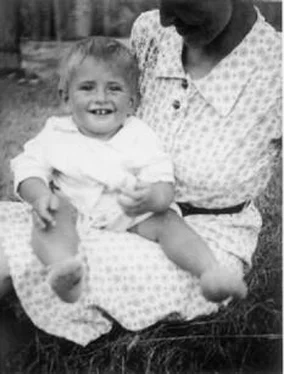


![Антон Текшин - EndGame [СИ]](/books/394477/anton-tekshin-endgame-si-thumb.webp)
